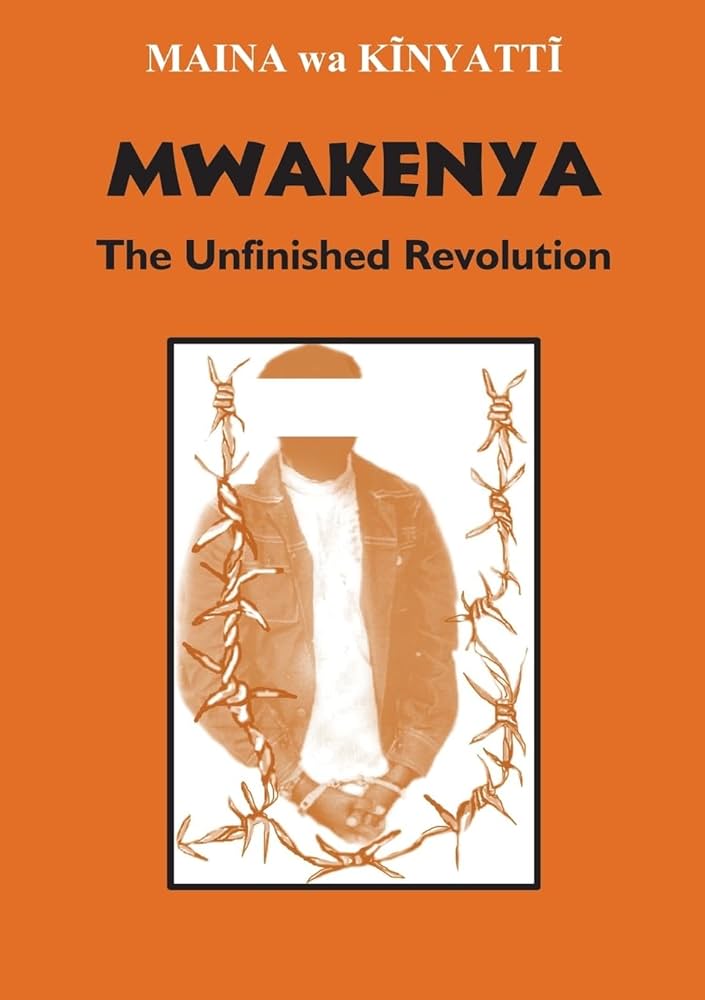- info@bookstore.ukombozilibrary.org
- Free Shipping for all Order of Ksh 5,000

This volume represents the development of the WPK/DTM-Mwakenya's anti-imperialist line in Kenya from1974 to 2002. The Mwakenya Movement (Muungano wa Wazalendo wa Kenya/ Union of Patriotic Kenyans) was an underground socialist movement in Kenya in the 1980s formed to fight for multi-party democracy. Independence means self-determination and self-government. An independent nation is one with the autonomy to make decisions, which will advance the welfare of its people. It is a nation that controls its own resources, and has the political and economic scope to utilise these resources, human and natural, free of foreign interference. Independence in this sense has little relevance to the current Kenyan situation. Citizens find themselves in a dependent neocolonial country, wholly subservient to foreign interests. The country's economy is geared to the needs of foreigners, both to the ex-colonial masters and other Western imperialist nations. Neocolonialism is not merely an academic debate in Kenya, it is a condition in which the people live day-by-day, a form of oppression and exploitation every bit as effective as that practiced by the British imperialist powers. Mwakenya believes that only a true revolutionary democratic system, controlled by Kenyans can bring fundamental changes in the country and liberate the people from foreign domination and national oppression, overhaul the corrupt neocolonial system, and establish an egalitarian system for the Kenyan people.
This volume represents the development of the WPK/DTM-Mwakenya's anti-imperialist line in Kenya from1974 to 2002. The Mwakenya Movement (Muungano wa Wazalendo wa Kenya/ Union of Patriotic Kenyans) was an underground socialist movement in Kenya in the 1980s formed to fight for multi-party democracy. Independence means self-determination and self-government. An independent nation is one with the autonomy to make decisions, which will advance the welfare of its people. It is a nation that controls its own resources, and has the political and economic scope to utilise these resources, human and natural, free of foreign interference. Independence in this sense has little relevance to the current Kenyan situation. Citizens find themselves in a dependent neocolonial country, wholly subservient to foreign interests. The country's economy is geared to the needs of foreigners, both to the ex-colonial masters and other Western imperialist nations. Neocolonialism is not merely an academic debate in Kenya, it is a condition in which the people live day-by-day, a form of oppression and exploitation every bit as effective as that practiced by the British imperialist powers. Mwakenya believes that only a true revolutionary democratic system, controlled by Kenyans can bring fundamental changes in the country and liberate the people from foreign domination and national oppression, overhaul the corrupt neocolonial system, and establish an egalitarian system for the Kenyan people.
Early Life and Education Maina wa Kĩnyattĩ is a distinguished Kenyan historian, author, and former political prisoner best known for his extensive research on the Mau Mau liberation struggle and his commitment to anti-imperialist and socialist causes in Kenya. He was born in Kenya during the colonial period, a time of intense political upheaval and resistance against British imperial rule. This environment would later shape his worldview and political orientation. Kĩnyattĩ pursued his early education in Kenya and later continued his academic journey abroad. He earned his Ph.D. in History from Temple University in the United States, where he deepened his study of African liberation movements, colonial resistance, and the socio-political history of Kenya. Activism and Imprisonment Maina wa Kĩnyattĩ is perhaps most widely known in Kenya for his imprisonment under the regime of President Daniel arap Moi. In the 1980s, Kĩnyattĩ was a university lecturer at Kenyatta University and an outspoken critic of the authoritarian government. He was arrested in 1982 under charges of sedition, largely due to his critical scholarship and suspected involvement in underground socialist movements. During his imprisonment, he was subjected to inhumane conditions, including torture and solitary confinement. Nevertheless, he remained resolute, turning his incarceration into a period of reflection, writing, and political resolve. His detention became emblematic of the broader crackdown on intellectual freedom and democratic dissent in Kenya at the time. Scholarship and Writings Maina wa Kĩnyattĩ's academic work is particularly influential in demystifying the Mau Mau movement, which colonial narratives had dismissed as a terrorist campaign. Through meticulous archival research and interviews with former fighters, Kĩnyattĩ presented the Mau Mau as a legitimate anti-colonial resistance rooted in land dispossession and economic injustice. His notable works include: Mau Mau: A Revolution Betrayed Kenya’s Freedom Struggle: The Dedan Kimathi Papers Thunder from the Mountains: Mau Mau Patriotic Songs These publications challenged both colonial and post-independence distortions of Kenyan history and advocated for a more people-centered, revolutionary interpretation. Exile and Later Life After his release from prison, Maina wa Kĩnyattĩ was forced into exile due to continued state persecution. He spent several years in the United States, where he continued his scholarship and activism. In exile, he remained a vocal advocate for democratic reforms, African socialism, and the rights of the Kenyan working class. He later returned to Kenya, where he continued to write, teach, and engage in political activism. Kĩnyattĩ has remained a strong critic of neoliberal policies, imperialism, and state repression, calling instead for a more just and equitable society rooted in the struggles of ordinary Kenyans. Legacy Maina wa Kĩnyattĩ is celebrated as one of Kenya's most courageous intellectuals and a leading authority on the history of anti-colonial resistance. His life and work reflect a deep commitment to truth, justice, and the liberation of oppressed peoples. Despite persecution, exile, and imprisonment, he has continued to use his voice and scholarship to expose injustice and inspire future generations to pursue radical transformation in Kenya and beyond.